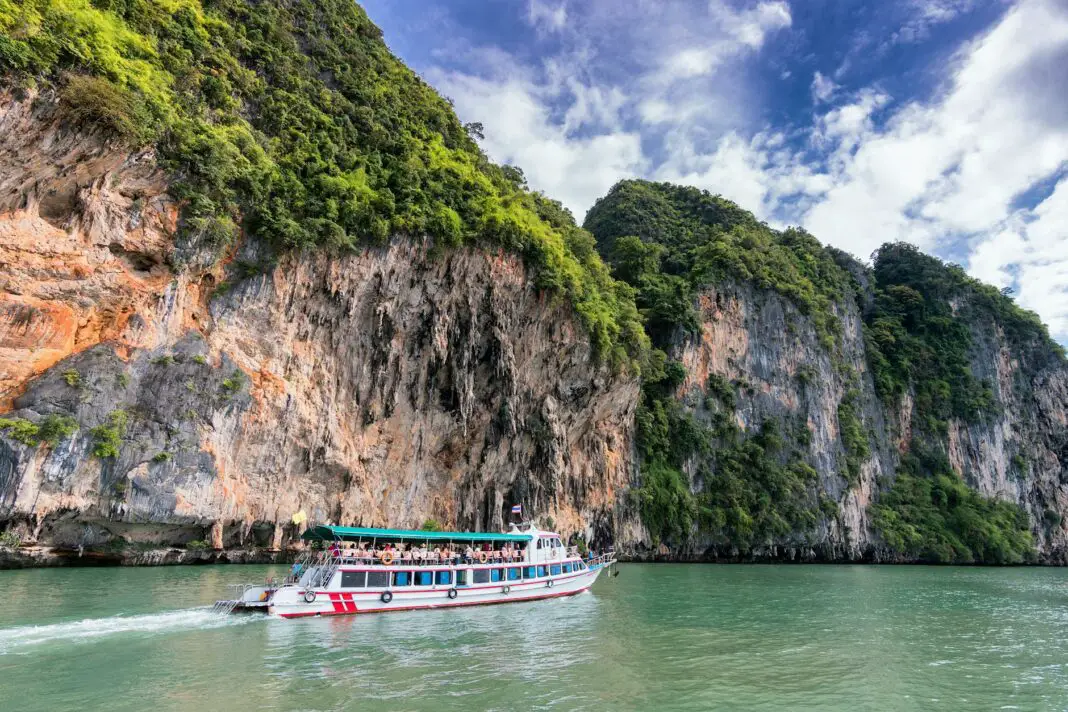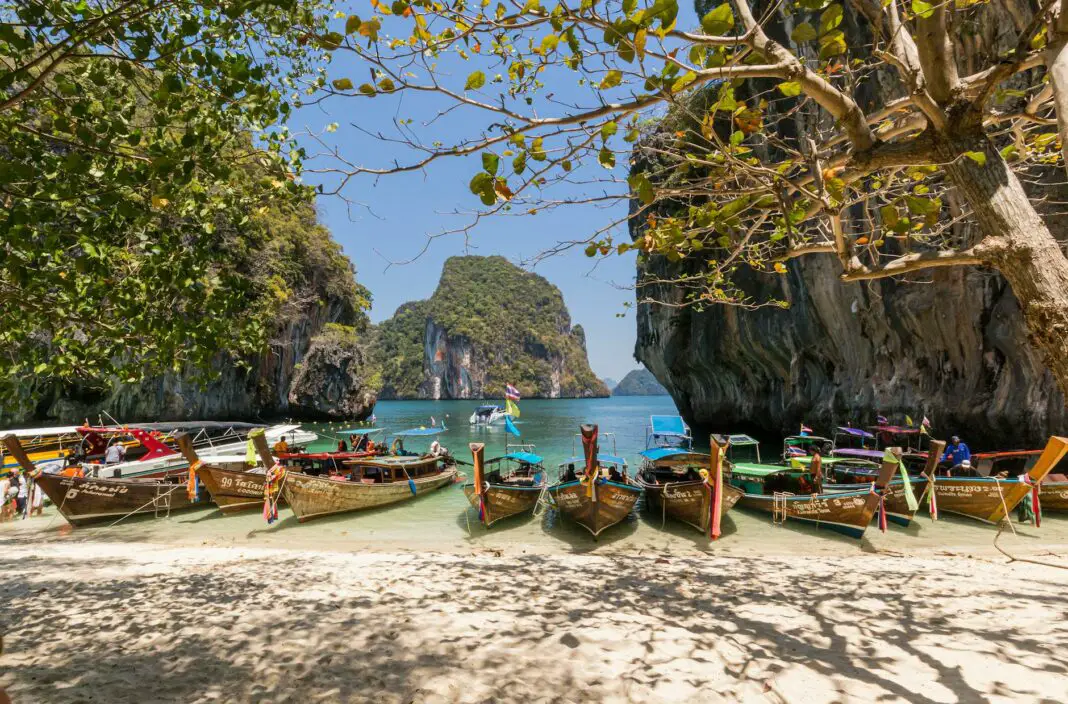Thailand is not just a beautiful tropical destination filled with stunning beaches and vibrant cities; it is also a leading light in eco-tourism. Travelers from around the world flock to this Southeast Asian gem to experience its lush landscapes, rich biodiversity, and unique culture. This blog post explores Thailand’s top eco-tourism success stories, inviting you to immerse yourself in its diverse ecosystems while making a positive impact on the environment. Discover how Thailand has struck a balance between attracting tourists and preserving its natural resources, offering an unforgettable adventure that is also kind to the planet.
As you dive deeper into this post, you will learn about various eco-conscious initiatives that have transformed Thailand into a model for sustainable tourism. From community-based projects to wildlife conservation efforts, the ecotourism landscape in Thailand is as colorful and intricate as the country’s renowned festivals and traditions. By embracing eco-tourism, you not only get to enjoy breathtaking scenery and rich cultural interactions but also learn how your travels can contribute to conservation. Let’s embark on this journey together, unearthing what makes Thailand a standout destination for eco-friendly travelers.
Table of Contents
- Introduction
- Successful Eco-Tourism Initiatives in Thailand
- National Parks: Guardians of Nature
- Community-Based Tourism: Connecting People and Cultures
- Wildlife Conservation Projects: Protecting Endangered Species
- Sustainable Agriculture: Farming with Nature
- Eco-Friendly Accommodations: Stay Sustainably
- Final Thoughts
- FAQ
Introduction
Thailand’s reputation as a paradise for adventurers and beach lovers continues to grow. However, its thriving eco-tourism scene takes the spotlight as travelers increasingly seek experiences that positively impact the environment. Engaging with local communities, supporting conservation efforts, and exploring stunning natural landscapes have become paramount for modern travelers. In this blog post, we will explore the success stories in Thailand’s eco-tourism sector that make it a must-visit for eco-conscious travelers.
These eco-tourism initiatives are not just promotional; they represent real, tangible efforts by local communities, governments, and conservationists to create sustainable tourism opportunities. By participating in these eco-friendly activities, travelers can enjoy authentic experiences while contributing to the preservation of Thailand’s unparalleled natural beauty and cultural heritage. Let’s dive right into the enthralling eco-tourism stories that put Thailand on the global map!
Successful Eco-Tourism Initiatives in Thailand
Many success stories illustrate Thailand’s commitment to eco-tourism, showcasing innovative projects that align the interests of travelers with environmental stewardship. From sustainably managed marine parks to organic farming initiatives, these projects demonstrate how eco-tourism can create a win-win situation for both visitors and local ecosystems. Notable examples include the initiatives by the Thai government to promote green travel, such as the Clean and Green City program, which encourages municipalities to adopt sustainable practices. Tourists engaging with these initiatives not only enrich their experience but also actively contribute to the flourishing of local economies.
Community engagement plays a critical role in these eco-tourism projects. Working closely with local people ensures that benefits from tourism are distributed fairly and fosters pride in their cultural identity. Visitors often find themselves immersed in authentic experiences, from traditional cooking classes to participating in village festivals. By championing such initiatives, travelers are supporting the sustainability of their travel choices while forging genuine connections with the destinations they visit.
National Parks: Guardians of Nature
Thailand is home to some of the most spectacular national parks showcasing its diverse ecosystems, ranging from tropical rainforests to stunning coral reefs. Parks like Khao Sok National Park and Erawan National Park not only provide breathtaking views and exhilarating activities such as trekking and kayaking but also serve as critical habitats for countless species. By visiting these national parks, eco-tourists have a unique opportunity to witness nature’s splendor and participate in conservation efforts aimed at protecting these vital areas.
Visitors often engage in eco-friendly activities such as wildlife observation and educational programs that promote awareness about the importance of conservation. Moreover, the entry fees collected in these national parks usually go towards funding local conservation programs, making every visit a step towards protecting the unique flora and fauna of Thailand. Exploring these natural wonders allows tourists to appreciate the richness of Thailand’s biodiversity while supporting ongoing preservation efforts.
Community-Based Tourism: Connecting People and Cultures
This form of tourism emphasizes the importance of local communities in shaping authentic travel experiences while providing them with vital economic support. Thailand is a pioneer in promoting community-based tourism, exemplified by projects like the Ban Phatthana Homestay in Chiang Mai, where visitors can partake in daily life alongside local families. This interaction fosters cultural understanding and showcases the significance of traditional practices that intertwine with sustainable living.
Moreover, travelers actively contribute to the local economy, helping preserve cultural traditions and supporting community development projects. Many homestays also engage in eco-friendly practices, offering visitors the chance to learn about organic farming, handicrafts, and sustainability. These immersive experiences create meaningful connections and empower local communities, illustrating the powerful impact of community-based ecotourism.
Wildlife Conservation Projects: Protecting Endangered Species
Thailand prides itself on its various wildlife conservation programs that aim to protect both its unique ecosystems and the endangered species that inhabit them. Organizations like the Elephant Nature Park in Chiang Mai focus on rescue and rehabilitation efforts, offering a safe haven for elephants rescued from neglect and abuse. Visitors can volunteer or participate in day tours that not only provide a unique learning opportunity but also support the ongoing work of these organizations.
Engaging with such wildlife projects provides tourists with insights into the challenges faced by these majestic creatures and the efforts dedicated to their recovery and protection. By choosing to participate in these programs, travelers contribute directly to conservation initiatives while gaining an unparalleled connection to nature. Many wildlife parks and sanctuaries encourage responsible tourism, emphasizing the importance of ethical practices that prioritize the well-being of animals and their habitats.
Sustainable Agriculture: Farming with Nature
The integration of sustainable agricultural practices into eco-tourism highlights the importance of harmonizing human activity with ecological balance. Farmers in various regions of Thailand are adopting organic farming techniques and agroforestry practices that protect soil health, promote biodiversity, and minimize chemical usage. These farms often welcome visitors for educational tours that showcase the benefits of sustainable agriculture while offering fresh, local produce.
By visiting these farms, tourists learn firsthand about eco-friendly practices such as permaculture, crop rotation, and the use of natural pest control. Engaging in farm tours, cooking classes, or traditional harvest activities allows visitors to connect deeply with the land while gaining valuable knowledge about sustainable food systems. This engagement not only raises awareness around food choices but also aids local farmers in promoting sustainable practices, showcasing the vital link between eco-tourism and agriculture.
Eco-Friendly Accommodations: Stay Sustainably
Travelers seeking eco-friendly lodging in Thailand are in for a treat, with a plethora of options available, including eco-lodges, boutique hotels, and even treehouses. Many accommodations emphasize sustainability through energy-efficient practices, waste reduction, and sourcing locally-produced materials. Some properties also engage in community development and conservation initiatives, allowing guests to play an active role in supporting local economies and environments.
Choosing eco-friendly accommodations enhances the travel experience by aligning personal values with environmental responsibility. Many of these places offer unique experiences such as guided nature walks, cooking workshops with local chefs, and opportunities to participate in conservation efforts. By opting for a green stay, travelers contribute directly to sustainability initiatives while enjoying exceptional hospitality and adventures that intertwine with Thailand’s rich cultural tapestry.
Embark on Your Eco-Adventure
While soaking in the beauty of Thailand, consider the impact your travels can have on the environment and local communities. Engaging with eco-tourism initiatives not only enhances your visit but also promotes sustainability and fosters a positive legacy for future generations. Explore the vibrant ecosystems, participate in community projects, and stay in eco-friendly accommodations to transform your vacation into a meaningful adventure. The world of eco-tourism in Thailand awaits, offering unforgettable experiences that celebrate both nature and culture while reinforcing your role as a responsible traveler.
FAQ
What is eco-tourism?
Eco-tourism refers to responsible travel practices that focus on conservation, sustainability, and the well-being of local communities while enjoying natural attractions.
How can I participate in eco-tourism while visiting Thailand?
You can participate by choosing activities such as visiting national parks, staying in eco-friendly accommodations, supporting community-based tourism, and engaging in wildlife conservation efforts.
What are some eco-friendly activities to do in Thailand?
Some activities include hiking in national parks, volunteering at wildlife sanctuaries, taking part in organic farming tours, and supporting local artisans through workshops.
Are eco-tourism projects in Thailand affordable?
Many eco-tourism projects are designed to be affordable, allowing travelers of all budgets to participate while contributing positively to local communities.
Explore the wonders of Thailand’s eco-tourism landscape, contribute positively to the environment, and leave with stories and experiences that will last a lifetime. Now is the time to embrace a sustainable adventure that allows you to marvel at nature while making a difference!
Image Credit: Pexels





